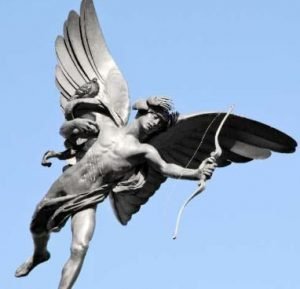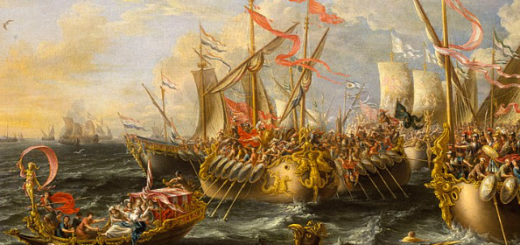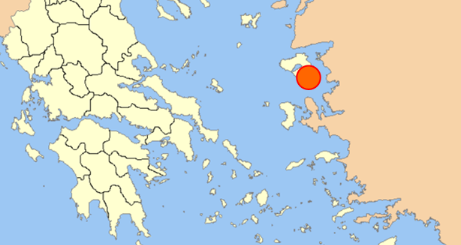14 Major Ancient Roman Gods and Goddesses

Roman gods
To a large extent, the origins of Roman gods and goddesses stemmed from the assimilation of deities of foreign conquered lands. One of such place that strongly influenced not just their religion but their entire culture was ancient Greece. After Greece’s capitulation at the hands of the Romans, Rome embraced a great number of Greek gods and goddesses. Below are 14 major Roman gods and goddess that domineered over the affairs of the Romans:
Their Greek counterparts have been placed in parenthesis
Jupiter (Zeus), the God King
The ancient Romans saw Jupiter as the King of the Pantheon in Rome. Similar to his counterpart, Zeus of Greece, Jupiter was worshiped by Rome as the god of the sky, light and all of heaven. He was known as Optimus Maximus (the Best and Greatest) of all gods and often had in his hands a thunderbolt.
Jupiter’s father was Saturn (Cronus in Greek mythology). Jupiter married his sister, Juno (Hera). He also had other siblings such as Neptune (Poseidon) Pluto (Hades), Demeter (Ceres), and Vesta (Hestia).
Jupiter’s origin story is similar to Zeus’ in Greek mythology in the sense that Jupiter was held as the patron god of the capital city, Rome. As a bringer of Rome’s laws, he was worshiped as the protector of Rome. To the Etruscans, Jupiter was part of the three gods that made up the Capitoline Triad. The other two were Juno and Minerva.
Juno (Hera), the Goddess Queen
As queen of the gods, Juno, also known as Hera in Greek mythology, was the patron goddess of Rome. She was the brother and wife of Jupiter. This made her daughter of Saturn as well. Her other brothers were Neptune (Poseidon) and Pluto.
Juno birth several gods and goddesses such as Juventas, Mars and Vulcan. Historians believe that ancient Rome worshiped Juno on the Quirinal Hill. Most of her divine traits are similar to goddess queen Hera of Greece. The ancients believed that she was the divine protector of the world. She also governed on a host of issues pertaining to women. On Juno’s celebration day, Matronalia, men gave out gifts of all kinds to their wives.
Neptune (Poseidon), the Sea God
Neptune was the son of Saturn and a brother to Jupiter and Juno. The Romans portrayed him as the god of the oceans and sea, earthquakes, horses and hurricanes. He also had dominion over freshwater. As a major Roman god, Neptune was adulated in the same manner as Poseidon. What this meant was that Neptune often depicted wielding his famous trident. The temple near Circus Flaminius was a very popular place of worship for believers of Neptune. Neptune’s name was often called upon in times of water shortages and drought.
Pluto (Hades), the God of the Underworld
Saturn had three main sons: Jupiter, Neptune, and Pluto. After the children of Saturn overthrew him, they shared the world among themselves. It was agreed that Jupiter would have dominion over the sky; Neptune would have control over the seas and oceans; Pluto would manage the realm of the underworld.
Pluto’s realm was where the dead souls of men went. Unlike his other siblings, Pluto never fathered a child. He, however, entrapped several people in his realm. Most notable of this was Ceres’ daughter, Proserpine.
Pluto has virtually the same attributes as his Greek counterpart Hades. The Greeks often portrayed him as the god of riches and rare minerals. This is due to the fact that gold and other mineral deposits are found underground. The ancient Romans desisted from mentioning his name lest he came to carry them to his world.
In today’s day and age, Pluto lends its deadly attribute to the radioactive material plutonium, a substance considered highly toxic and deadly. Also, what once used to be the ninth planet in the far reaches of the Kuiper Belt, Pluto is famed for its barren and ice-cold conditions- a sharp depiction of exactly how ancient Rome perceived the god Pluto.
Minerva (Athena), goddess of Wisdom and Military Strategy
Minerva is arguably the goddess with the most attributes. The Romans usually prayed to her for wisdom, medicinal arts, trade, poetry, and strategy.
Ancient Rome believed that Minerva popped into existence from the forehead of Jupiter, her father. This was a result of Jupiter gulping goddess Metis (Minerva’s mother). The myth goes on to say that Jupiter committed this heinous act because he was afraid that the children of Metis would one day topple him as the supreme god of the pantheon. Another account of the story states that after Jupiter impregnated his sister, Metis, Minerva came out of Jupiter’s head.
Considering her origin story, many Roman generals sought her help when it came to military strategy and battle plans. Hence, Minerva, just like her Greek counterpart, Athena, was regarded as the patron of war and strategic warfare. Common depictions of Minerva showed her in a very battle-ready posture wearing a helmet and wielding a spear and a shield.
Mars (Ares), the god of War and Agriculture
As a son of Juno, Mars was a very influential god in the hearts and minds of the ancient Romans. He was chiefly in charge of war and agriculture. It is interesting that the Romans attributed two totally unrelated things – war and agriculture – to the god Mars. By virtue of the war and battle attributions, Mars has often been seen in similar light as the Greek god Ares.
The Romans described Mars as a very complex heavenly deity that could burst out in rage and fits of anger at any moment. However, there have been times that the myths portrayed him as a very level-headed god that was interested in blessing men with bountiful harvest and crops.
Among some circles, Mars was even considered the father of Romulus and Remus (Rome’s founders).
Another very interesting thing that the Romans did was name the month of March after Mars. Historians believe that it was also in the month of March that the Romans often began their military conquests of neighboring counties and cities. The month of March is exactly when Spring season starts in the northern hemisphere. It, therefore, made a lot of sense tagging the god Mars as the patron of agriculture.
Venus (Aphrodite), the god of love, desires, and wine
Venus, the mother of Rome, was the exact antithesis of Mars. She was the nurturing kind of god- more like a mother figure to the ancient Romans. That’s how come she was always associated with things such as fertility, love, desires, beauty, sex, and wine. Venus was arguably the calmest and gentlest of all gods and goddess in the Roman pantheon. These traits of hers are parallel to those of the Greek goddess Aphrodite.
Ancient Rome believed that Venus’ natural traits allowed her to mother several children. At a point in time, Venus and Mars had a very steaming love affair. She even bore four children for the god Mars. They were the twins- Timor and Metus; Concordia; and Cupids.
There have been countless literature works (both past and present) that have described men as being the direct descendants of Mars and women being the descendants of Venus.
Apollo (Apollo), God of the Sun and Light
Apollo was born to parents Jupiter and Latona. He had a twin sister called Diana (Artemis), the goddess of the hunt and the moon. Apollo’s myth and character traits are identical in both Greek and Roman mythologies.
Apollo’s origins are not as clear as his fellow other gods and goddesses. Stories about Apollo predates ancient Greece. Historians have uncovered remnants of his name mentioned as far back as during the Hittite and the Mesopotamian era.
Apollo has been described as a very youthful and non-aging beardless god. He was often seen as the god of the Sun- the light and truth bringer. Other areas under his control were prophecies, archery, music, and healing.
Around 5 BCE, the Romans erected a temple around the Flaminian Fields to honor Apollo. Places of Apollo’s worship were often nicknamed Phoebus or Phoibos (Latin for ‘bright’). His worship was particularly prevalent during the reign of Emperor Augustus, Rome’s first emperor. There was even a festival celebration called the Quinquennial Games held in Apollo’s honor.
More: 24 Facts about Apollo, the Greek God of the Sun
Diana (Artemis), God of Hunt and Birth
As stated above, Diana was Apollo’s twin sister. The sky god Jupiter and Latona were her parents. As a goddess, Diana reigned over Rome’s hunt and birth. Particularly during childbirth, the Romans often invoked Diana’s name.
She was also the embodiment of celestial bodies and things. Most famous of her characterization was her dominion over the moon. According to the Romans, Diana was part of three maiden goddesses (the other two were Vesta and Minerva) of the pantheon.
Vulcan (Hephaestus), God of Fire and Metals
As god of fire, volcanoes, and metals, Vulcan was the master blacksmith of the gods. He was such a crafted forger that the Romans believed he was the god that forged the various gods’ weapons. For example, Jupiter’s thunderbolt and Neptune’s trident were forged by Vulcan.
According to the Romans, Mount Aetna in Sicily is the exact place where Vulcan did his forging and master craftsmanship.
The Romans honor Vulcan during a very famous festival called Vulcanalia. This festival was held in the month of August – a time where forest fires were most common or likely to occur. They primarily did this to plead with Vulcan from unleashing his fire upon them.
In the eyes of the ancient Greeks, Vulcan was known as Hephaestus. To the Etruscan, he was Sethlans. Another very interesting thing is that the English word ‘volcano’ originates from the Latin Vulcānus. This is in recognition of Vulcan’s characteristics.
Vesta (Hestia), goddess of Chastity and Hearth
Vesta was a Greek goddess born to Saturn (Cronus). She was the first child of Saturn. Interestingly, she was also the first victim of Saturn’s wrath and jealousy. Vesta was the first child to get swallowed by Saturn. Kind courtesy to quick thinking by Jupiter, Vesta was the last god freed from the clutches of Saturn. As a result of this, Vesta is regarded as both the oldest and youngest of the Roman gods.
There were very few Roman goddesses that could hold a candle to Vesta’s beauty. As a result of her beauty, she received several advances from gods as Neptune and Apollo. Many of these advances fell on deaf ears and she went on to remain chaste. Her place of worship was run by priestesses called the Vestal Virgins. The worship places of Vesta were closed off to the public except during the Vestalia festival. This festival was celebrated around June. Worshipers were allowed into the temple and shrine of Vesta to offer sacrifices. During the festival, the Romans would pray to Vesta, the goddess of hearth, to keep their homes and families safe. Cults that engaged in sacrifices and offerings to the Vesta lasted until around 391 BCE when the Christian Emperor Theodosius I reigned.
Mercury (Hermes), the god of Wealth, Trade and Eloquence
The Roman god Mercury was the son of Maia and Jupiter. Mercury is considered by many as a relatively newer god of the Romans. He is usually associated with commerce, eloquence, poetry, travel, and profit and wealth acquisition. Roman business owners often called on him to grant them a safe journey on their business trips.
The Romans knew that sometimes in order to make profits, one had to be cunning and have something up his/her sleeves. Hence, Mercury was also associated with trickery and thievery. One would certainly be right to call Mercury the god that prevailed over ancient Rome’s version of Wall Street. The god Mercury took care of everything- from having the right eloquence for a sales pitch or business deals to actually securing the deal.
Ceres (Demeter), goddess of Agriculture and Motherhood
Ceres comes from the Greek god Demeter. Her father was the Titan, Saturn (Cronus). In a typical fashion, the Romans associated similar attributes of Demeter to Ceres. The goddess Ceres was in charge of everything related to agriculture, motherhood, and marriage. Her special interest was in grain and cereals. It is for this reason why the word ‘cereal’ came to be. It stems from Ceres’ name.
As a result of her benevolent nature, the Romans venerated her in very high esteem. Without her benevolence, all grains and cereals would wilt. However, it was not always nice and rosy for Ceres. The ancient myth has it that, Ceres’ daughter, Proserpine, was kidnapped by Pluto (the underworld god). Kind courtesy to the pleas of Jupiter, Pluto allowed Proserpine to reunite with her mother for only half of the year- from spring to autumn. For the other seasons of the year, Proserpine was held captive in the realm of the underworld. The Romans used Proserpine’s absence on earth as an explanation for the lean season during winter.
Ceres’ festival took place for about 7 days in the month of April. During the festival, the women dressed in white in honor of Ceres. This dress code was like a mourning ritual to empathize with Ceres’ half-a-year wandering of the earth in search of her daughter, Proserpine.
Bacchus (Dionysus), the god of Wine and Religious Ecstasy
Bacchus’ narratives are in direct semblance with that of the Greek god Dionysus. The Romans viewed him as the god of wine, religious ecstasy, and the theater. The festival, the Bacchanalia, was celebrated in honor of Bacchus. The festival involved a lot of drinking, merrymaking, and dancing. In some cases, the celebration got a tar bit out of control due to high levels of intoxication among the public. A number of unruly people used this as an opportunity to cause fear and mayhem in the city. Therefore, violence and sexually deviant behaviors were often the order of the day during the drunken feast of Bacchanalia.
READ MORE: Top 12 Ancient Mesopotamian Gods and Goddesses
Conclusion
Throughout its life span of about 12 centuries, the Roman Empire worshiped the above 14, as well as many more deities. They believed that success, good health, and prosperity came from maintaining a very strong bond with these gods and goddesses. As a result, the Romans took to having gods and goddesses for almost every aspect of their society. A typical Roman had at least one of the major god or goddess’ shrine or monument at home. The multiplicity of the divine played a crucial role in the life of Rome. Today, these mythological stories entertain our imaginations by featuring extensively in our arts and literature.




























there is more including silvanus god of forests